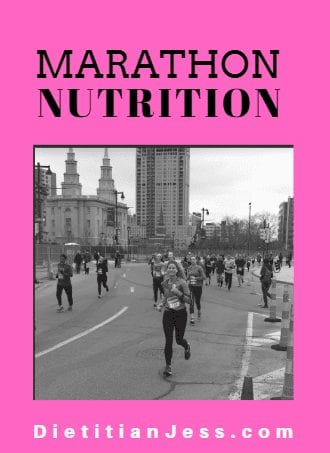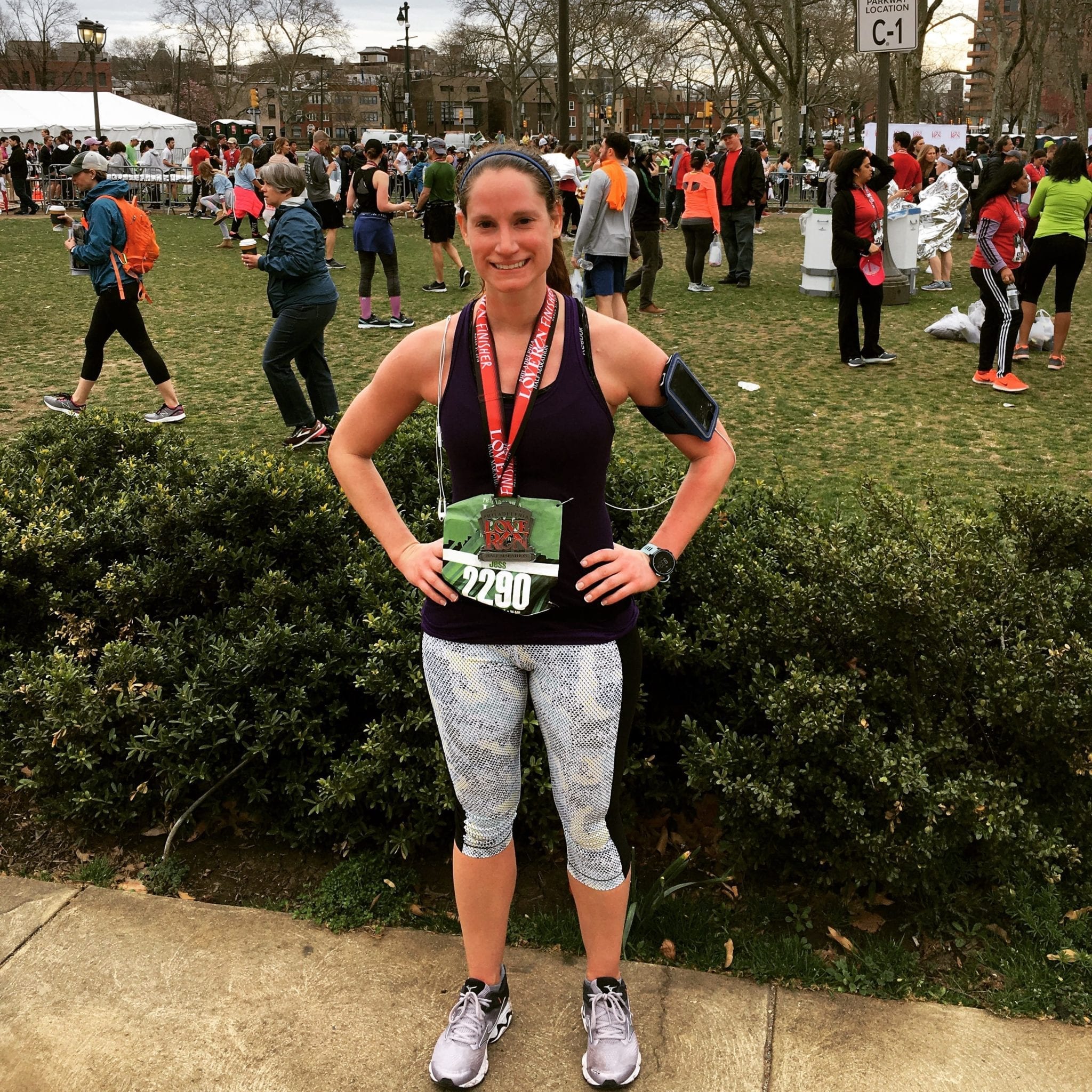Nutrition Tips from a Registered Dietitian –
[ad_1]

While nutrition is highly individualized, there are some general guidelines to follow when running a marathon. In case you missed my first post about general nutrition during fall marathon training-make sure you go check that out first! I personally am getting ready to run the Pittsburgh Half Marathon (in person for the first time!) and excited to see many friends running the half and full! Registration closes this week so make sure you jump over their site and sign up now! (USE DISCOUNT CODE DEGORE15)
Okay the first thing to focus on for marathon nutrition is to make sure you eat something before you race (or any long run). It doesn’t need to be a huge meal but it’s important to get some fuel prior to starting your run. Long runs are also great opportunities for training your gut so make sure to experiment with different foods until you find what works best for you.
Your pre-run meal should be lower in fat, protein, and fiber and higher in simple carbs. Simple carbs are broken down quickly to provide energy which is why they are key. Some examples include: bread, cereal, banana, quick oats, etc. (Too often I see people skipping meals- and as your marathon nutrition dietitian I would strongly advise against it!)

Prior to the race you might want to take in more simple carbs such as small bagel, stroop waffle, cheerios, etc. This can be necessary if you are eating breakfast at 5am but not even starting the race until after 8am.
During the race it’s all about finding what works for you- I personally use gels and gummies because they seem to be the easiest. Some real food options for fueling include: Swedish fish, dates, raisins, high carb nutrition bar, maple syrup, honey, whole fruit, pretzels, and more.
Once you’ve found the fuel that works for you the most important thing is to make sure you are taking that nutrition in consistently. The general rule of thumb is drink at least 8 oz of water with any food consumed during exercise and aim to consume 30 to 60 g of carbohydrate per hour. Obviously amount of food needed will depend highly on your pace but again- use those long runs to experiment. Don’t forget to drink water. I actually recommend my athletes to get water at every stop to ensure proper hydration. It’s helpful even if you’re only taking a sip.
Overall I’ve seen nutrition make and break many endurance athletes days- don’t let this happen to you!
What nutrition tips do you have for running? What do you use to fuel your long runs??
[ad_2]
Source link








